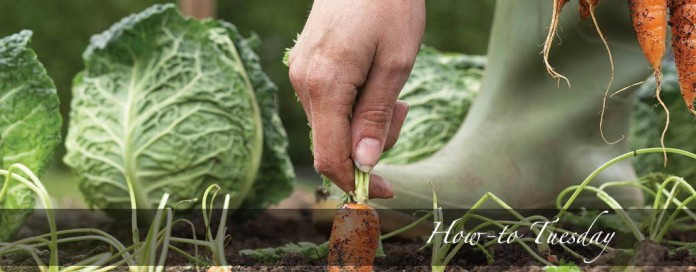Once you add up the cost of seeds, fertilizer and other materials, gardening seems like it’s an expensive hobby. Initially, costs are generally higher than the cost of maintaining a garden throughout the summer, but it never hurts to be frugal wherever you are in the gardening process.
Here are five ways to save money in the garden this summer, adapted from Oregon State University Extension Service’s gardening tips:
1. When it comes to tools, keep it simple
You don’t have to buy lots of fancy tools for gardening. Stick to the basics:
- A trowel to dig up holes for new seeds and seedlings, transplant, move or smooth out soil
- A spade for cutting and digging heavy soil
- Shears or scissors to deadhead plants and flowers
- A garden rake or hand cultivator to work up soil
- A hoe to cultivate and dig up weeds and grass
- A shovel for digging up soil
- A hand weeder for weeding
- A leaf rake to clean up your garden after the season ends
There are plenty of other tools that are used for specific jobs, like a scuffle hoe that’s designed for weeding. There are also tools that are designed to be used for multiple jobs, like a hori hori knife for sculpting shrubs, weeding and completing other chores. If you can make do without them, don’t buy them.
2. Take care of your tools
It’s a good idea to shop around for good deals on gardening tools. While the most expensive tool may not be the best, the least expensive might not be either. Pay attention to the materials used to make the tools before you decide which ones to buy. Also, remember that gardening tools should last more than one season. Buy products that are built to last.
Make sure that you’re taking care of your tools. Store them in a protected, dry place. Check tools periodically to make sure that there aren’t any loose screws or nuts. Also, make sure that your tools are properly sharpened so they work the way they are designed to work. Doing this will help to keep them in good shape for years of use.
3. Make your own compost
Compost is used to improve your soil and the plants growing in it. It can be bought, but you have access to materials in your kitchen and your yard that can combine to make quality compost for your plants. Materials such as coffee grounds, grass clippings, newsprint and shredded stems and leaves are great for making compost.
You can even build your own compost bin in your backyard by using cinder or cement blocks, a garbage can or even spare lumber.
4. Use netting to keep out pests
Instead of letting wildlife have a heyday in your garden, protect your plants with polypropylene netting.
It’s a bit of an investment, depending on the size of your garden, but it will result in less vegetable loss down the road, plus it can be reused. Products such as Bird-X, Deer-X and similar products are marketed for use in home gardens for vegetables, fruit and flowers. They can be found at stores like Home Depot, Walmart and online.
Other strategies for protecting your plants and keeping pests out of your garden:
- How to protect your garden from birds May 26, 2015
- How to manage insects in the garden May 12, 2015
- How to keep wildlife out of your garden April 14, 2015
5. Conserve water
Gardens need plenty of water, but there’s no need to run up your monthly water bill. Online columnist Ivory Harlow offers several tips for conserving water in the garden, from applying mulch to using drip irrigation methods of watering.












